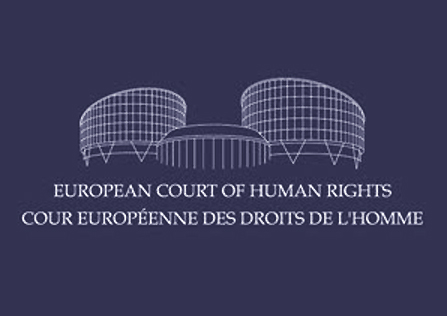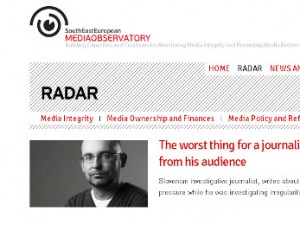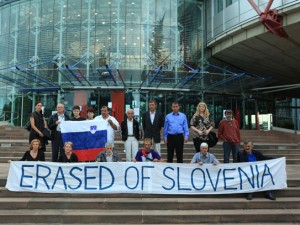Central and Eastern European NGOs statement on the Future of the European Court of Human Rights
Central and Eastern European NGOs statement on the Future of the European Court of Human Rights
1. 4. 2014

A conference devoted to „The Long-Term Future of the European Court of Human Rights” will be held in Oslo, Norway on the 7th and 8th of April 2014. The conference is organized under the auspices of the Council of Europe and will be one of the most important debates on the future of the European Court of Human Rights (“ECtHR”) since the Brighton Conference held on 18-20 April 2012.
A coalition of non-governmental organizations coming from Central and Eastern Europe would like to take the opportunity to recall the fundamentals lying behind the adoption of the Convention. Coming from countries where the ECtHR triggered important democratic changes and brought substantial progress with regards to human rights protection, we feel obligated to take a stand in the ongoing debate. We feel well-placed to do so, since we witnessed the potential of the ECtHR to influence the case law on repairing structural deficiencies in countries of transition.
The Council of Europe’s philosophical and political roots go back to the fight and resistance against Nazism and Fascism, and the belief that the horrors and crimes they had brought about should not be allowed to recur. The founding fathers of the system were determined to build a united Europe on a solid basis, on a set of strong shared values and ideas. These fundamentals, and the member states commitment to them, are the reason why the system survived and flourished for more than 60 years. The respect for the European Court of Human Rights’ case law and the proper implementation of its judgments at the national level is one of the key elements of the system’s progress and success.
However, as we observe with concern, some of the member states have started to vehemently attack and question the European Court of Human Rights’ legitimacy. This manifested itself, in the reform process, in the attempts to restrict the possibility of lodging complaints with the Court such as, for example, promoting the idea to introduce fees or mandatory representation by a lawyer. This hostile approach also resulted in political statements disrespectful for the Court and the Registry. The consequences of such actions may impact the individuals, human rights defenders and NGOs from countries where the Court is often their only hope for justice. Other states would use every excuse (such as the margin of appreciation) to oppose the Court in sensitive cases.
We believe that in face of these obstacles, member states should take a serious responsibility for the future of the European Court of Human Rights. Saving the Court and the human rights protection system should become a European priority. States should reaffirm their will to fulfill obligations resulting from their participation in the Convention. A return to the root ideas of the Convention is required, but it is also necessary to grant institutional and financial support to the Court. These issues have been discussed for years, however they have not yet been translated, especially in the crisis period, into any concrete and meaningful actions. The ECtHR itself has also an important role to play in the process. The Court’s Registry can only strengthen its credibility and position by quick examination of strategic cases.
The system of the European Convention, despite many criticisms and the backlog of cases, is regarded worldwide as the most effective human rights protection mechanism. Other regions of the world may only envy Europe. We believe that trust in the system should still unite the people of Europe around the idea of fundamental rights. But it is our joint, European duty to take care of it. Therefore, we, the undersigned NGOs, would like to call on the participants of the conference, representatives of the academia, Council of Europe employees, government representatives and European NGOs, for a reflection on the current needs of the system.
– Association for Legal Intervention (Poland)
– Association for the Defense of Human Rights in Romania – the Helsinki Committee, APADOR (Romania)
– Astras Central and Eastern European Women’s Network for Sexual and Reproductive Rights and Health
– B.a.B.e., Budi aktivna. Budi emancipiran (Croatia)
– Belgrade Center for Human Rights (Serbia)
– Bulgarian Helsinki Committee
– Czech Helsinki Committee
– Helsinki Foundation for Human Rights (Poland)
– Human Rights Action (Montenegro)
– Human Rights Center (Estonia)
– Human Rights House Zagreb (Croatia)
– Human Rights Monitoring Institute (Lithuania)
– Hungarian Helsinki Committee
– Iuridicum Remedium (Czech Republic)
– Latvian Center for Human Rights
– League of Human Rights (Czech Republic)
– Polish Society of Antidiscrimination Law (Poland)
– Sarajevo Open Center (Bosnia and Herzegovina)
– The Peace Institute (Slovenia)
– Via Iuris (Slovakia)
– YUCOM Lawyers’ Committee for Human Rights (Serbia)
– Association for the Defense of Human Rights in Romania – the Helsinki Committee, APADOR (Romania)
– Astras Central and Eastern European Women’s Network for Sexual and Reproductive Rights and Health
– B.a.B.e., Budi aktivna. Budi emancipiran (Croatia)
– Belgrade Center for Human Rights (Serbia)
– Bulgarian Helsinki Committee
– Czech Helsinki Committee
– Helsinki Foundation for Human Rights (Poland)
– Human Rights Action (Montenegro)
– Human Rights Center (Estonia)
– Human Rights House Zagreb (Croatia)
– Human Rights Monitoring Institute (Lithuania)
– Hungarian Helsinki Committee
– Iuridicum Remedium (Czech Republic)
– Latvian Center for Human Rights
– League of Human Rights (Czech Republic)
– Polish Society of Antidiscrimination Law (Poland)
– Sarajevo Open Center (Bosnia and Herzegovina)
– The Peace Institute (Slovenia)
– Via Iuris (Slovakia)
– YUCOM Lawyers’ Committee for Human Rights (Serbia)
Statement (pdf)


